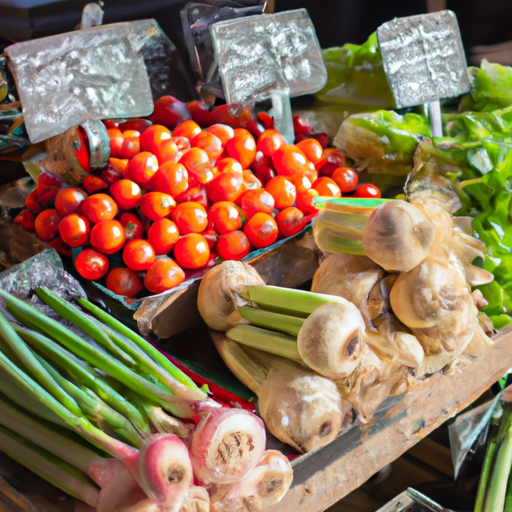Veganism has exploded in popularity in recent years, with more and more people adopting plant-based lifestyles for health, ethical, and environmental reasons. One of the biggest drivers behind the vegan movement is sustainability – the quest to live in a way that does not negatively impact the planet or deplete its resources. In this article, we will explore how veganism promotes sustainability and can benefit the environment if adopted on a larger scale. We will also bust some common myths about vegan diets.
The Environmental Impact of Animal Agriculture
The production of meat and other animal products places a heavy burden on the environment. Here are some of the major issues:
- Land use: An estimated 30% of the earth’s land surface is used for livestock grazing and growing feed crops. This leads to deforestation and loss of wildlife habitats.
- Water use: The animal agriculture industry accounts for nearly one-third of the freshwater used globally. Producing just one hamburger patty requires 660 gallons of water.
- Pollution: Factory farms generate huge amounts of air and water pollution from methane, manure lagoons, and fertilizer runoff. This contributes to algal blooms, dead zones in the ocean, and contamination of waterways.
- Carbon emissions: Livestock produce large amounts of greenhouse gases, with animal ag responsible for an estimated 14.5% of human-caused emissions globally. Cows produce 150 billion gallons of methane per day simply from burping and passing gas!
Reducing consumption of animal products could significantly lower agriculture’s environmental impact based on these factors alone.
How Vegan Diets Promote Sustainability
Vegan diets are focused entirely on plant foods like grains, legumes, fruits, vegetables, nuts and seeds. By avoiding all animal products, vegans typically have a much smaller ecological footprint.
Here are some of the sustainability benefits associated with plant-based eating:
- Reduced land use: Growing feed crops for livestock takes up vast amounts of cropland and pasture. An estimated 75% less land could be used if crops were grown for direct human consumption rather than animal feed.
- Water savings: The water footprint of vegan foods is significantly lower compared to animal products. For example, producing just one kilogram of beef requires 15,000 liters of water. The water footprint of vegan staples like legumes and grains is dramatically less.
- Lower carbon emissions: According to a comprehensive Oxford study, going vegan is the single biggest way an individual can reduce their carbon footprint. Vegan diets produce 50% less CO2 emissions than conventional diets with meat and dairy.
- Less pollution: Eliminating factory farms and their massive waste lagoons would greatly reduce agricultural pollution. Veganic farming methods avoid synthetic fertilizers and pesticides, further minimizing environmental harm from runoff.
Simply put, vegan diets allow us to feed more people using far fewer natural resources. Widespread adoption of plant-based eating could make food systems more equitable and ecologically sound.
Addressing Common Myths and Questions
Despite the clear environmental benefits, some stubborn myths still surround veganism. Let’s explore a few common critiques:
Myth: Vegans must rely heavily on processed mock meats and cheeses, which are highly packaged and environmentally unfriendly.
Fact: While these products have exploded in popularity, well-balanced vegan diets emphasize whole foods like beans, lentils, nuts, seeds, produce, and whole grains. These unpackaged plant staples have a very low footprint. Of course, acquiring them from local sources amplifies sustainability.
Myth: Vegan diets cannot deliver adequate nutrition, so supplementation is required.
Fact: With thoughtful meal planning, vegans can easily meet all their nutritional needs from plant sources alone. Key nutrients to focus on include protein, iron, calcium, omega-3s, zinc, and vitamin B12. Supplementation is often merely an insurance policy.
Myth: Large amounts of land are needed to grow quinoa and other vegan staple crops, damaging environments overseas.
Fact: Quinoa originated in the Andes region of South America, where it is a traditional food. The rising international demand for quinoa has presented some sustainability challenges in Peru and Bolivia, but the crop itself is not inherently unsustainable. There are also many other nutritious grains and pseudograins like amaranth, teff, buckwheat, and millet that provide diversity for vegan diets.
Myth: Avocados and almond milk are ruining the planet due to water use and environmental harm where they are grown.
Fact: It’s true that avocados require significant water use, and almond farming has impacted bee populations in California. However, all foods have pros and cons, and these favorites remain far less impactful than animal products. As with quinoa, diversity is key – coconut, oat, rice and soy milks provide excellent alternatives to almond milk, for example.
Where Do We Go From Here?
The vegan movement has made great strides, but still represents only a small fraction of the population. That means the full potential for plant-based living to benefit the planet has yet to be realized.
More work is needed in these areas to drive sustainability forward:
- Education: clearing up misconceptions about veganism and highlighting the environmental impacts of animal ag.
- Accessibility: making plant-based foods convenient, affordable and available everywhere. Food deserts represent a major obstacle.
- Policy reform: eliminating government subsidies that artificially lower animal product prices and legalizing regenerative farming practices.
The goal should not necessarily be for everyone to go fully vegan overnight. But if more people incorporated plant-based foods into their diets regularly, it would still create enormous positive impact. Meatless Mondays are a great start!
Adopting renewable energy sources, reducing waste, and making smart transportation choices also complement dietary shifts. An integrated approach is required to create truly sustainable systems.
The quest for sustainability and care for the planet is not just a vegan issue – it’s one that concerns us all. Since food choices represent such a tangible way to effect change, the growth of veganism can spark wider lifestyle changes that benefit the earth. Our collective future depends on it.
The Value of Community Connection
Seeking community support and connection with like-minded others can help strengthen and sustain vegan lifestyles. Here are some ideas for getting involved:
- Check out local vegan meetup groups to find potlucks, restaurant outings and more. Don’t be deterred by potential awkward interactions – most will be welcoming!
- Volunteer at farm animal sanctuaries to connect with these gentle beings and help educate visitors. Understanding their emotional lives deepens compassion.
- If you have children, seek out other vegan families for playdates and advice about compassionate vegan parenting. A support network is invaluable.
- Check colleges and houses of worship for vegan clubs and affinity groups. Many have recreational outings as well as volunteering opportunities.
- Don’t neglect online communities! Follow inspiring accounts on social media, and participate in forums like Reddit to exchange tips and find camaraderie.
Exploring a vegan lifestyle can sometimes feel isolating at first. But connecting with others makes the journey more joyful and sustainable for the long-term. Grow your compassionate community!


Recent Comments